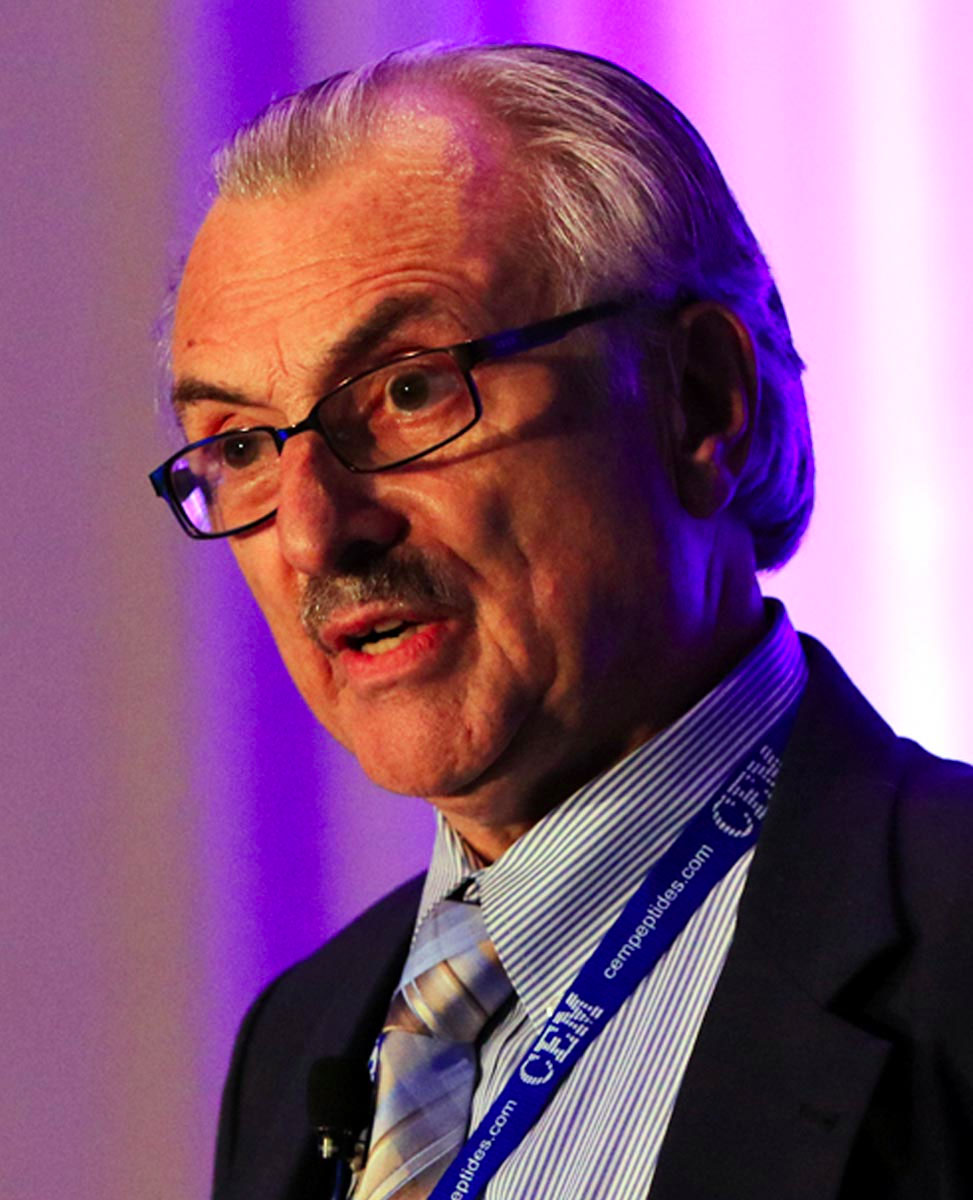Victor J. Hruby
Professor Victor J. Hruby is Regents Professor in the Department of Chemistry and Biochemistry at the University of Arizona. Dr. Hruby was born in Valley City, North Dakota and received his B.S. and M.S., with A. William Johnson, at the University of North Dakota. He then went to Cornell University where he received his Ph.D. with A. T. Blomquist, and then was an Instructor at Cornell University Medical College with Vincent duVigneaud, Nobel Laureate. He moved to the University of Arizona in 1968 as an Assistant Professor.
Professor Hruby’s research has been primarily in the chemistry, conformation-biological activity relationships, and molecular mechanisms of information transduction and of molecular diseases associated with peptide hormones and neurotransmitters and their receptors that modulate health, disease and human behavior. Specific hormones and neurotransmitters of interest include the opioids, the melanotropins, CCK, glucagon, substance P, oxytocin and related compounds and receptors. Specific methods and approaches used in this research include: de novo design of biologically active peptides and peptidomimetics; asymmetric synthesis; design and asymmetric synthesis of novel amino acids; computational chemistry; conformational analysis using NMR, X-ray crystallography and other biophysical tools; combinatorial chemistry; conformation-biological activity relationships, especially as they relate to the design of conformationally and topographically constrained peptide, peptidomimetic and peptide mimetic hormone and neurotransmitter agonists and antagonists for exploring the chemical-physical basis for information transduction in biological systems; the design, synthesis and biological evaluation of peptide and peptide mimetic ligands that affect pain, addictions, feeding behaviors, pigmentation, sexual behavior and motivation, glucose homeostasis, cancer and other biological effects; the chemical-physical basis for behavior; the mechanisms of hormone and neurotransmitter action; peptide mimetic design; and the structure-function of G-protein coupled receptors.
The Hruby group also is developing new synthetic methodologies for the assembly of multimeric ligands for the detection and treatment of pain, cancer and other diseases; a new approach to design of ligands for disease states involving the concept of overlapping pharmacophores to address several receptors simultaneously in a single small molecular ligand for the treatment of neuropathic pain without tolerance or addiction and which cross the blood-brain-barrier; and a new biophysical method, plasmon waveguide resonance spectroscopy, which allows one for the first time to examine the structures, thermodynamics and kinetics of GPCRs and other integral membrane proteins on interactions with ligands, modulatory proteins, enzymes, parallel and perpendicular to the membrane bilayer independently. Professor Hruby has published over 1000 articles, reviews, chapters, commentaries and editorials and has over 25 patents and patent filings.
Victor Hruby has received numerous awards and honors, including a Guggenheim Fellowship (1984), the Alan E. Pierce Award, now the Merrifield Award, 1993, a Senior Humboldt Fellowship, 1999-2000, and the American Chemical Society Arthur C. Cope Scholar Award, 2009. He was awarded a Doctor of Science, Honous Causa from the Free University of Brussels, 1989, and was named Regents Professor at the University of Arizona, 1989. Additional awards include the American Chemical Society Ralph F. Hirschmann Award, 2002, The Jacob Javits Neuroscience Award, 1987, the NIH MERIT Award, 1988, Sommer Award, 2003, and Arizona Innovator of the Year, 2009.


